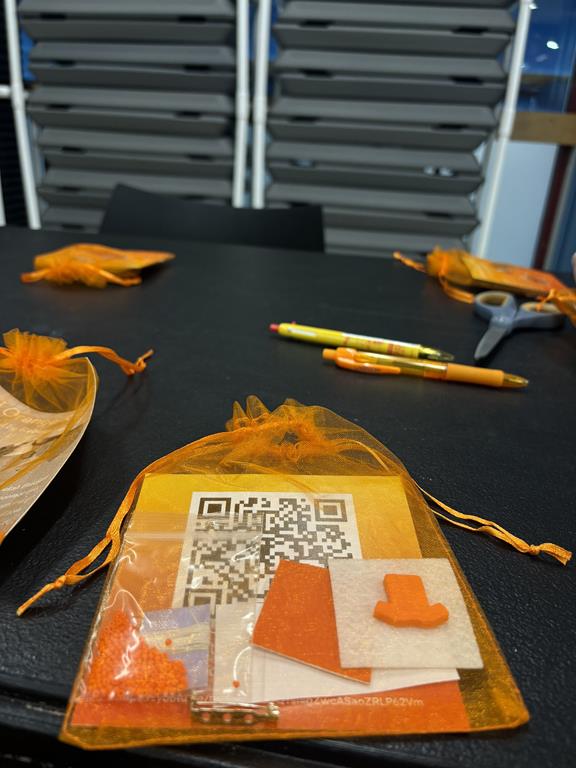Every year, Sept. 30 marks both a federal statutory holiday for the National Day for Truth and Reconciliation and Orange Shirt Day. The former honours the survivors of residential schools as well as the Indigenous children who never returned home. Orange Shirt Day is an Indigenous-led grassroots commemorative day to promote the movement of “every child matters.” The day aims to raise awareness of the tragic history and symbolizes the stripping away of culture and freedoms experienced by the Indigenous community over generations.
In recognition of Orange Shirt Day and as a part of BC Culture Days, the City of Abbotsford organized a beading event with local artist and beader Rebekah Brackett on Sept. 22 and Sept. 29 at the Abbotsford Recreation Centre. For Brackett, being a member of the Piikani Nation, leading this workshop is especially important as it’s a way for her to honour her family members and everyone impacted by the tragic atrocities from the schools.
The event, which had around 30 people in attendance, started with Rebekah and her husband, Shawn Peters, sharing the history of Orange Shirt Day to emphasize the importance of the event. They handed out beading kits which included a manual, an orange shirt cab — a centrepiece to bead around — threads, beads, pins, and a beading mat. The event continued with Brackett demonstrating how to thread the needle and make the first stitch. As attendees started their projects, both Brackett and Peters helped, encouraging everyone to bead at their own pace.
As an attendee myself, it was a new and challenging experience; I have never sewn before. I was confused and hesitant on how to start, and I tangled my threads multiple times. Peters helped me untangle with so much patience while Brackett helped me wrap up my beading toward the end.
The inspiration behind the orange shirt traces back to the story of Phyllis Webstad, a survivor of the residential school system. Webstad was only six years old when she was sent to a residential school; she was excited to wear her new orange shirt to school, but it was taken away from her upon arrival. “We bead the pins to honour Phyllis and all those who went to residential schools,” shared Brackett.
Jagjit Akali, a UFV alumni who attended the event said, “I found it to be incredibly well-organized. Rebekah Brackett, the local artist who led the workshop, was so knowledgeable, and it was a privilege to learn from her. The opportunity to engage in beading while learning more about Indigenous culture was both meaningful and eye-opening. I would highly encourage everyone to attend events like this — it’s so important to come together, especially in recognition of the National Day for Truth and Reconciliation, and gain a deeper understanding of Indigenous history and traditions.”
Another attendee, Tiffany Sanna, said, “It was very mindful, I think. Just spending time with people, learning stories and different things, learning craft together and having a community.”
Wearing an orange shirt pin or an orange shirt is a powerful symbol, Brackett further emphasized, “It is not where the work stops. We don’t simply wear a pin; we have to do the work that the 94 Calls to Actions outlined. It will take time, and work, and wearing a pin is a great first step.”
Events like these pay respect to the Indigenous communities while creating a sense of community. These events help raise awareness and collectively heal while educating ourselves to build a future where every child matters.



